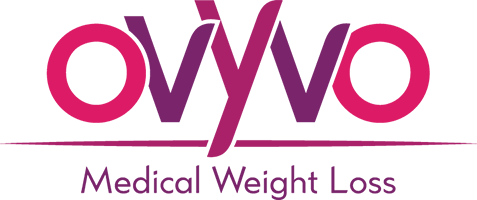Searching for the best weight loss supplements for women? Incorporating the right nutritional supplements into your diet can be a crucial step in tackling the unique challenges that women face on their weight loss journeys.
Hormonal fluctuations, metabolism, and other physiological factors can complicate efforts to shed pounds, making targeted nutritional support essential. Supplements can boost metabolism, reduce cravings, and ensure your body gets the nutrients it needs to function optimally while losing weight.
However, it’s crucial to remember that supplements are just one piece of the puzzle. They are most effective when used in combination with a healthy diet and regular exercise. Think of them as tools in your wellness toolkit, enhancing your body’s natural ability to shed weight when supported by proper nutrition and physical activity.
Before starting any new supplement regimen, it’s important to consult with a healthcare provider. They can help you understand which supplements are safe and beneficial for your specific health needs, ensuring that your journey to weight loss is both successful and healthy.
By embracing a holistic approach that includes diet, exercise, and the judicious use of supplements, you can enjoy a balanced and effective weight loss strategy that is tailored specifically for women. Let’s explore how you can harness these tools to reach your wellness goals with confidence and health!
Understanding Nutritional Supplements for Weight Loss

Nutritional supplements are products designed to complement the diet and provide nutrients, such as vitamins, minerals, fiber, fatty acids, or amino acids, that may be missing or consumed in insufficient quantities in a person’s diet. When it comes to weight loss, these supplements can play a supportive role by enhancing various bodily functions that facilitate weight management by…
- Boosting Metabolic Function: Many supplements contain ingredients like green tea extract, caffeine, and capsaicin, which have been shown to increase metabolic rate. An increased metabolism burns more calories, which can lead to weight loss.
- Suppressing Appetite: Ingredients such as fiber (e.g., glucomannan) and certain proteins can help you feel fuller for longer, reducing the likelihood of overeating. This can be particularly beneficial for managing calorie intake without feeling deprived.
- Enhancing Fat Oxidation: Some supplements encourage the body to use fat as its energy source more effectively, rather than storing it. For example, conjugated linoleic acid (CLA) and L-carnitine are known for their roles in fat metabolism.
- Reducing Absorption: Certain supplements can decrease the amount of fat or carbohydrates absorbed by the body during digestion, which can contribute to a calorie deficit necessary for weight loss. White kidney bean extract is an example of a supplement that reduces carbohydrate absorption.
By understanding these mechanisms, you can make more informed choices about incorporating weight loss supplements into your health regimen. Remember, the efficacy of these supplements can vary greatly from person to person, and they are most effective when used in conjunction with a balanced diet and regular exercise.
As always, consult with a healthcare provider before starting any new supplement to ensure it fits your health needs and goals.
Vitamins and Minerals for Weight Loss
When considering all the best weight loss supplements for women, don’t overlook the importance of vitamins and minerals. Incorporating essential vitamins and minerals into your diet is crucial not only for general health but also for enhancing weight management. Below, we explore several key nutrients, their roles in overall health, their specific benefits for weight management, recommended dosages for women, and natural food sources.
Magnesium
- General Health Role: Involved in over 300 enzyme reactions, including nerve function and regulating blood pressure.
- Role in Weight Management: Supports metabolic and muscular function, which may contribute to energy production and fat metabolism during physical activity..
- Dosing Suggestions for Women: 310-320 mg/day.
- Food Sources: Leafy greens, nuts, seeds, and whole grains.
Magnesium is key to over 300 biochemical reactions in the body, many of which contribute to proper metabolic function and energy production. It also supports muscle function, which is essential for good workouts. Adequate magnesium levels may enhance your body’s ability to burn fat and produce energy efficiently during weight loss.
Vitamin D
- General Health Role: Essential for bone health, immune function, and reducing inflammation.
- Role in Weight Management: May influence fat cells to reduce their formation and help break down stored fats.
- Dosing Suggestions for Women: 600-800 IU/day, with some experts recommending up to 2,000 IU for optimal health.
- Food Sources: Fatty fish like salmon, fortified dairy products, and egg yolks.
Vitamin D is often called the “sunshine vitamin” because your body produces it in response to sunlight. Research suggests that Vitamin D has various roles in body weight regulation. It may influence fat cells by reducing their formation and aiding in the breakdown of stored fat. Low levels of vitamin D have been linked to higher fat accumulation, which means maintaining adequate levels might help manage body weight and reduce the risk of developing obesity.
Iron
- General Health Role: Critical for creating hemoglobin, which carries oxygen in the blood.
- Role in Weight Management: Essential for energy production and efficient metabolism.
- Dosing Suggestions for Women: 18 mg/day.
- Food Sources: Red meat, spinach, lentils, and fortified cereals.
Iron plays a critical role in helping your body produce energy from nutrients. It is vital for creating hemoglobin, the protein in red blood cells that carries oxygen to your tissues. With sufficient iron levels, your muscles and tissues receive the oxygen needed for burning calories during exercise. If you’re iron-deficient, your metabolism may slow down, and you might feel too fatigued to engage in physical activity, hindering weight loss.
Please note: Iron supplementation should be taken under medical advice, especially for women, as excessive iron can be harmful.
Calcium
- General Health Role: Vital for bone health and muscle function.
- Role in Weight Management: May help regulate how fat is stored and broken down in the body.
- Dosing Suggestions for Women: 1,000 mg/day for those under 50, and 1,200 mg/day for those 50+.
- Food Sources: Dairy products, kale, and broccoli.
Calcium is more commonly known for its role in bone health, but it’s also important for proper fat metabolism. Studies suggest that calcium can bind to small amounts of fat and prevent its absorption in the digestive tract, effectively reducing the amount of fat absorbed by the body. Moreover, dietary calcium might help increase fat excretion, further promoting a healthy body weight.
Zinc
- General Health Role: Supports immune function and wound healing.
- Role in Weight Management: Plays a role in hormone production that regulates metabolism and appetite.
- Dosing Suggestions for Women: 8 mg/day.
- Food Sources: Oysters, beef, tofu, and pumpkin seeds.
Zinc is a vital mineral that supports numerous biological functions, including immune response, DNA synthesis, and cellular metabolism. It also plays a critical role in protein synthesis and wound healing. For weight management, zinc is particularly significant due to its influence on the body’s hormonal balance. It helps regulate the production and function of leptin, a hormone crucial for appetite control and energy expenditure. Maintaining adequate zinc levels can help prevent leptin resistance, which is often associated with increased appetite and weight gain. Ensuring an optimal intake of zinc through diet or supplementation can support metabolic health and aid in maintaining a healthy weight.
L-carnitine
- General Health Role: Plays a critical role in energy production by transporting fatty acids into your mitochondria.
- Role in Weight Management: May enhance the body’s ability to burn fat for energy, potentially aiding in weight loss.
- Dosing Suggestions for Women: 500–2,000 mg per day.
- Food Sources: Red meat, nuts, and seeds.
L-carnitine is not just important for heart and brain function, but also for muscle movement and many other body processes. For weight management, it helps increase the burning of fat by ensuring fatty acids are available for producing energy, especially useful during exercise. While L-carnitine may be beneficial for weight management, its effectiveness can be more pronounced in individuals with deficiencies.
B Vitamins (B6, B12, etc.)
- General Health Role: Crucial for brain function and energy production.
- Role in Weight Management: Helps convert food into energy, supporting higher energy levels and metabolic function.
- Dosing Suggestions for Women: B6: 1.3-1.5 mg/day; B12: 2.4 µg/day.
- Food Sources: Chicken, fish, dairy, eggs, and fortified cereals.
The B vitamins, including B6 and B12, are essential for a fully functioning metabolism. They help the body convert food into energy, which is crucial for burning calories. Moreover, B vitamins aid in the production of neurotransmitters that regulate mood and conduct signals throughout the body, thus supporting energy levels. Ensuring you have adequate B vitamins can help maintain your energy throughout weight loss efforts, making your exercise sessions more effective.
Niacin (Vitamin B3)
- General Health Role: Supports skin health, nerve function, and digestion.
- Role in Weight Management: Helps maintain the proper function of fats and sugars in the body.
- Dosing Suggestions for Women: 14 mg/day.
- Food Sources: Turkey, chicken breast, peanuts, and mushrooms.
Niacin, or Vitamin B3, is important for maintaining the health of the nervous system, digestive system, and skin. It also has a crucial role in converting food into energy by participating in the metabolism of sugars and fats. This process is essential for maintaining energy levels and supporting overall metabolic health. By helping the body produce energy more efficiently, niacin can aid in weight management and help prevent the accumulation of body fat. An adequate intake of niacin ensures that the body’s energy production is optimal, supporting both weight loss efforts and overall health.
Vitamin C
- General Health Role: Antioxidant that supports immune function and skin health.
- Role in Weight Management: Essential for the synthesis of carnitine, a molecule that helps burn fatty acids for energy.
- Dosing Suggestions for Women: 75 mg/day.
- Food Sources: Citrus fruits, strawberries, bell peppers, and kiwi.
Vitamin C is a potent antioxidant that’s essential for the growth, development, and repair of all body tissues. It’s involved in many body functions, including collagen formation, iron absorption, and the maintenance of cartilage, bones, and teeth. Beyond its immune-boosting effects, Vitamin C plays a pivotal role in metabolic processes by aiding in the synthesis of carnitine, a molecule that helps convert fatty acids into energy. This function is particularly beneficial for weight management, as it helps the body burn fat more effectively. Higher intakes of Vitamin C have been linked to a lower body mass index, as the nutrient helps enhance fat oxidation during physical activity.
Chromium Picolinate
- General Health Role: Enhances insulin activity and ensures optimal blood sugar metabolism.
- Role in Weight Management: May improve nutrient metabolism and reduce appetite, particularly for carbohydrates.
- Dosing Suggestions for Women: 200–1,000 mcg per day.
- Food Sources: Broccoli, grapes, meat, and whole grains.
Chromium picolinate is praised for its ability to enhance insulin sensitivity and reduce cravings for carbohydrates, which can lead to reduced calorie intake and weight loss. It has been studied for its potential effects on body composition by helping to reduce body fat and sparing muscle mass. Research continues, with some studies supporting the benefits of chromium for weight loss, and others showing no significant effects.
Selenium
- General Health Role: Important for thyroid gland function and antioxidant defense systems.
- Role in Weight Management: Supports thyroid function, which regulates metabolism.
- Dosing Suggestions for Women: 55 µg/day.
- Food Sources: Brazil nuts, seafood, and meats.
Selenium is an essential trace mineral that is crucial for the proper functioning of the thyroid gland, which regulates metabolism. It also plays a role in protecting the body against oxidative stress and infection. Selenium’s ability to support thyroid health makes it vital for maintaining a healthy metabolism. An efficiently working thyroid ensures that metabolism is kept at an optimal rate, which is crucial for weight loss and overall energy levels. Adequate selenium intake is necessary to prevent thyroid dysfunction, which can lead to weight gain and a host of other health issues. However, selenium should not be overly supplemented as it can lead to selenium toxicity.
Protein Supplements for Weight Loss

Protein supplements can be a valuable addition to a weight loss plan, offering benefits that go beyond mere calorie control. They are particularly beneficial for preserving muscle mass and enhancing satiety, which can help manage your weight effectively. Here, we will focus on two popular types of protein supplements: whey protein and casein protein.
Whey Protein
- General Health Role: Supports muscle repair and growth, highly digestible.
- Role in Weight Management: Can increase satiety and help preserve lean muscle mass, which maintains metabolism.
- Dosing Suggestions for Women: 20-25 grams per shake, as meal replacement or snack.
- Food Sources: Available in powder form; commonly added to shakes, smoothies.
Whey protein is one of the most widely used supplements for weight loss and muscle building. It is a complete protein, meaning it contains all the essential amino acids necessary for muscle repair and growth. The high-quality protein in whey is excellent for preserving muscle mass during weight loss, which is crucial because it helps maintain your metabolic rate. Additionally, whey protein can promote satiety, reducing hunger and the likelihood of overeating. Its rapid digestion and absorption make it ideal for post-workout recovery, helping to stimulate muscle synthesis effectively.
Casein Protein
- General Health Role: Complete protein that supports muscle recovery and growth, digests slowly.
- Role in Weight Management: Provides prolonged fullness, helps control hunger.
- Dosing Suggestions for Women: 20-30 grams per serving, ideally before bedtime.
- Food Sources: Primarily in powder form; naturally present in dairy products like cottage cheese.
Casein protein is known for its slow-digesting properties, making it an excellent choice for prolonged satiety and appetite control. Unlike whey, casein forms a gel when it interacts with stomach acid, slowing down stomach emptying and extending the digestion time. This slow release helps maintain a steady level of satiety, which can reduce overall calorie intake by curbing the desire to snack between meals. Because of its long-lasting nature, casein is often recommended as a supplement before bed to aid with overnight muscle repair and growth, supporting weight loss efforts by enhancing muscle preservation.
Fiber Supplements for Weight Loss
When considering weight management strategies, dietary fiber plays a pivotal role due to its significant benefits for digestion and satiety. Fiber supplements, such as psyllium husk and glucomannan, are excellent tools for enhancing dietary fiber intake, offering unique properties that support weight loss.
These supplements help increase the feeling of fullness, which can lead to a natural reduction in calorie intake, and improve digestive health, making them a vital component of any weight management plan. In this section, we’ll explore the benefits and specifics of two popular fiber supplements, highlighting how they can integrate into a weight loss regimen effectively.
Psyllium Husk
- General Health Role: Supports digestive health by promoting regular bowel movements and helping to maintain a healthy gut flora.
- Role in Weight Management: May increase feelings of fullness, reducing overall calorie intake by slowing digestion.
- Dosing Suggestions for Women: Typically, 5-10 grams with a glass of water, taken 1-3 times daily before meals.
- Food Sources: Not commonly found in foods; primarily consumed as a supplement in powdered or husk form.
Psyllium husk is a form of fiber made from the husks of the Plantago ovata plant’s seeds. It absorbs water in your gut and can help consistency of bowel movements, while also promoting satiety. This can lead to reduced calorie intake, as it may help you feel full for a longer period. Additionally, psyllium may aid in managing cholesterol levels, which is beneficial for overall cardiovascular health.
Glucomannan
- General Health Role: Aids in improving digestive health and regulating blood sugar levels.
- Role in Weight Management: May reduce appetite, leading to decreased calorie intake.
- Dosing Suggestions for Women: Generally, 1 gram, taken with water 1-3 times a day before meals.
- Food Sources: Derived from the root of the konjac plant and is not typically found in regular foods; consumed as a supplement.
Glucomannan is a water-soluble dietary fiber extracted from the roots of the elephant yam, also known as konjac. It has an exceptional ability to absorb water and is one of the most viscous dietary fibers known. When consumed, it expands in your stomach and may promote a feeling of fullness, helping you eat fewer calories. Some studies have shown that glucomannan can support weight loss and may also help reduce the absorption of protein and fat, and feed beneficial gut bacteria.
Other Natural Supplements That Can Support Weight Loss

Natural supplements can play a supportive role by enhancing metabolic functions, reducing appetite, and aiding in fat oxidation. This section explores a variety of natural supplements known for their weight loss benefits, ranging from green tea extract, which boosts metabolism, to exotic compounds like yohimbine that enhance fat burning through biological pathways. Each supplement offers unique advantages that can complement a balanced diet and exercise regimen for those looking to manage or reduce their weight effectively.
Caffeine
- General Health Role: Stimulates the central nervous system and increases alertness.
- Role in Weight Management: Enhances energy expenditure and promotes greater fat burning, particularly before and during physical activity.
- Dosing Suggestions for Women: Up to 400 mg per day.
- Food Sources: Coffee, tea, and many soft drinks.
Caffeine is a potent metabolic booster, helping to increase the rate at which your body burns calories and fat. It is particularly effective when taken before exercise, helping to increase fat oxidation rates and overall energy expenditure. However, individual responses to caffeine can vary.
Please note: Potential side effects of excessive caffeine intake include nervousness, insomnia, and increased heart rate. Consuming too much caffeine can be harmful or, in some cases, even fatal.
Green Tea Extract
- General Health Role: Loaded with antioxidants known as catechins.
- Role in Weight Management: May enhance metabolic rate and promote fat oxidation.
- Dosing Suggestions for Women: Typically, 250–500 mg per day.
- Food Sources: Most commonly consumed in extract form or as a beverage.
Green tea extract is renowned for its high concentration of catechins, particularly epigallocatechin gallate (EGCG), which has been studied for its ability to boost metabolic rate and enhance fat burning. Regular consumption can help modulate body weight and support other health benefits like improved cardiovascular health. However, while green tea extract is linked to increased metabolic rate, the effect might be modest and varies by individual.
Capsaicin
- General Health Role: Acts as an anti-inflammatory and antioxidant.
- Role in Weight Management: May temporarily enhance metabolism and increase fat burning.
- Dosing Suggestions for Women: Typically used in small amounts in dietary forms; supplement dosages vary but often range from 2-6 mg per day in capsule form.
- Food Sources: Naturally found in chili peppers.
Capsaicin, the active component in chili peppers that gives them their heat, is also recognized for its potential health benefits. It is commonly used to support pain relief, thanks to its anti-inflammatory properties, and as an antioxidant. For weight management, capsaicin is valued for its ability to boost metabolism and increase fat oxidation. Studies suggest that consuming capsaicin can lead to a temporary increase in energy expenditure (calorie burning) and enhance fat breakdown. It achieves these effects by triggering certain receptors in the body that increase heat production and fat burning, a process known as thermogenesis.
Conjugated Linoleic Acid (CLA)
- General Health Role: Supports immune function and may reduce the risk of chronic diseases.
- Role in Weight Management: May aid in reducing body fat mass and help in muscle preservation.
- Dosing Suggestions for Women: About 3 grams per day.
- Food Sources: Dairy and beef, but most effective in supplement form.
CLA is a type of fatty acid found naturally in meat and dairy products, though supplements are necessary to achieve the dosages at which effects on weight loss are seen. It’s known for its potential to decrease body fat while improving lean muscle mass, making it a popular supplement among those looking to improve body composition. However, the effects of CLA on weight loss are unclear at this time, with some studies showing mixed results regarding its efficacy.
Yohimbine
- General Health Role: Acts as a stimulant and aphrodisiac.
- Role in Weight Management: May increase adrenaline levels and inhibit a regulatory process on fat cells, enhancing fat loss.
- Dosing Suggestions for Women: Typically, 0.2 mg/kg of body weight taken before exercise.
- Food Sources: Yohimbine is extracted from yohimbe bark and is not found in regular foods; available as a supplement.
Extracted from the bark of a West African tree, yohimbine works by blocking alpha-2 adrenergic receptors located in fat cells, which can increase fat burning. It’s particularly noted for its ability to reduce stubborn fat and is most effective when taken on an empty stomach before exercise.
Please note: Potential side effects include increased heart rate and anxiety, especially at higher doses.
Apple Cider Vinegar
- General Health Role: Supports digestive health and helps regulate blood sugar levels.
- Role in Weight Management: May promote satiety and reduce overall calorie intake by managing blood sugar spikes after meals.
- Dosing Suggestions for Women: 15-30 ml diluted in water, consumed before meals.
- Food Sources: Apple cider vinegar is typically consumed in liquid form and can also be used in salad dressings and marinades.
Apple cider vinegar is celebrated for its potential to lower blood sugar levels and increase feelings of fullness, which can lead to decreased calorie intake and weight loss over time. It contains acetic acid, which may slow down starch digestion, thus lowering the glycemic index of a meal. However, while popular, the evidence for apple cider vinegar in significant weight loss is still considered to be weak by scientific standards.
Turmeric (Curcumin)
- General Health Role: Known for its powerful anti-inflammatory and antioxidant effects.
- Role in Weight Management: May reduce inflammation associated with obesity and enhance metabolism.
- Dosing Suggestions for Women: 500–2,000 mg of curcumin per day.
- Food Sources: Turmeric spice commonly used in cooking.
Turmeric contains curcumin, which has been shown to influence body fat levels by its anti-inflammatory and antioxidant properties. It’s also suggested to improve insulin sensitivity and regulate lipid metabolism, which are beneficial in managing body weight. Research linking turmeric to weight loss directly is still emerging, and more studies are needed to confirm these effects.
Garcinia Cambogia
- General Health Role: May improve cholesterol levels and reduce inflammation.
- Role in Weight Management: May inhibit the production of new fatty acids, boost fat metabolism, and suppress appetite.
- Dosing Suggestions for Women: 500 mg, taken 30-60 minutes before meals.
- Food Sources: Extracted from the Garcinia gummi-gutta fruit, it is not available through dietary sources.
Garcinia Cambogia contains hydroxycitric acid, which is thought to aid weight loss by preventing citrate lyase, an enzyme that converts carbs into fat. However, while some studies suggest modest weight loss benefits, others show no significant effects.
Black Pepper (Piperine)
- General Health Role: Enhances nutrient absorption and has antioxidant properties.
- Role in Weight Management: Increases the bioavailability of nutritional compounds, notably enhancing the effects of other supplements like turmeric.
- Dosing Suggestions for Women: Often included in supplements containing turmeric, around 5–20 mg per day.
- Food Sources: Commonly used as a spice in various cuisines.
Piperine, the active compound in black pepper, is known for its ability to increase the absorption of curcumin by up to 2,000%. This not only enhances the efficacy of curcumin’s weight management properties but also amplifies its overall health benefits.
Additional Supplements for Consideration

In addition to conventional weight loss supplements, there are other supplements that may support weight management through various unique mechanisms, from improving metabolic functions to enhancing hormonal balance. Here we’ll explore the best weight loss supplements for women that might offer either direct or indirect weight loss benefits.
Probiotics
- General Health Role: Support digestive health and immune function.
- Role in Weight Management: May influence body weight by enhancing gut health and affecting the gut microbiota.
- Dosing Suggestions for Women: Varies widely depending on the strain; generally 1-10 billion CFUs per day.
- Food Sources: Yogurt, kefir, sauerkraut, and other fermented foods; also available in supplement form.
Probiotics play a crucial role in maintaining gut health, which is linked to various aspects of general health and weight management. By balancing the gut microbiota, probiotics may help regulate metabolism and reduce fat mass. However, while some studies have shown positive effects on weight management, the results can be highly variable depending on the strains and combinations of probiotics used.
Omega-3 Fatty Acids
- General Health Role: Essential for heart health, brain function, and inflammation reduction.
- Role in Weight Management: May enhance metabolism and help reduce body fat.
- Dosing Suggestions for Women: 1-2 grams of EPA and DHA per day.
- Food Sources: Fatty fish like salmon, mackerel, and sardines; available in fish oil supplements.
Omega-3 fatty acids are known for their role in heart health and anti-inflammatory properties. For weight management, they are thought to influence the process of metabolic regulation and fat storage. Research suggests that omega-3s may enhance the body’s ability to burn fat by boosting metabolic rates and influencing fat storage cells.
Milk Thistle
- General Health Role: Promotes liver health and supports detoxification.
- Role in Weight Management: Supports liver function, which can indirectly influence metabolism and fat management.
- Dosing Suggestions for Women: 140-300 mg of silymarin, the active ingredient, taken 1-3 times daily.
- Food Sources: Mainly taken as a supplement.
Milk thistle is primarily known for its benefits to liver health, crucial for metabolizing fats and hormones. By supporting liver function, milk thistle may indirectly contribute to weight management by maintaining optimal metabolic rates.
DIM (Diindolylmethane)
- General Health Role: Supports detoxification and promotes hormonal balance.
- Role in Weight Management: May help balance estrogen levels, influencing fat distribution and metabolism.
- Dosing Suggestions for Women: 100-200 mg per day.
- Food Sources: Found in cruciferous vegetables but typically supplemented for therapeutic doses.
DIM, a compound found in cruciferous vegetables, has been noted for its ability to support estrogen metabolism, which can play a significant role in body fat storage and distribution, particularly in women.
Inositol
- General Health Role: Supports insulin sensitivity and neurotransmitter function.
- Role in Weight Management: Helps manage symptoms of PCOS and improves metabolic health, crucial for weight management.
- Dosing Suggestions for Women: Typically recommended at 2-4 grams per day.
- Food Sources: Found in fruits, beans, grains, and nuts; supplementation is often used for therapeutic doses.
Inositol, often utilized in the treatment of PCOS, can significantly improve insulin sensitivity. By enhancing the body’s response to insulin, inositol helps lower blood sugar levels and improve ovulatory function, which can indirectly aid in weight management. Its ability to balance certain hormones makes it beneficial for women struggling with weight issues related to hormonal imbalances.
Chasteberry (Vitex Agnus-Castus)
- General Health Role: Promotes reproductive health and menstrual cycle regularity.
- Role in Weight Management: May influence hormonal balance, indirectly affecting body weight.
- Dosing Suggestions for Women: 160-240 mg of extract per day.
- Food Sources: Mainly available as a supplement.
Chasteberry is renowned for its ability to regulate menstrual cycles and improve fertility by impacting prolactin and progesterone levels. Although there is limited research on its direct effects on weight loss, regulating these hormones can potentially help stabilize body weight indirectly.
Black Cohosh
- General Health Role: Helps reduce menopause symptoms.
- Role in Weight Management: May assist in managing weight gain associated with menopausal hormonal changes.
- Dosing Suggestions for Women: 20-40 mg of extract twice daily.
- Food Sources: Primarily consumed as a supplement.
Black cohosh is commonly used to alleviate menopausal symptoms such as hot flashes and mood swings. While there is minimal evidence regarding its use for weight management. its potential effects on weight may stem from its ability to improve menopause-related metabolic changes.
Maca Root
- General Health Role: Supports energy levels, mood stabilization, and overall health.
- Role in Weight Management: Balances hormones, potentially supporting weight management.
- Dosing Suggestions for Women: 1.5-3 grams per day.
- Food Sources: Generally consumed as a powdered supplement.
Maca root is believed to help balance hormones and reduce menopausal symptoms. Studies on maca root have primarily focused on its benefits for sexual health and mood improvement. There’s limited evidence about its effectiveness in promoting weight loss, though it may help improve overall well-being, particularly for those experiencing hormonal fluctuations that affect body weight..
Evening Primrose Oil
- General Health Role: Supports skin health and hormonal balance.
- Role in Weight Management: May help regulate hormonal fluctuations that impact body weight.
- Dosing Suggestions for Women: 500-1,000 mg of GLA (gamma-linolenic acid) per day.
- Food Sources: Available in oil or capsule form as a supplement.
Evening primrose oil is valued for its effects on skin and hair health and for regulating hormonal balance, particularly related to PMS and menopause. While its direct impact on weight loss is not strongly supported by research at this time, it may help manage weight indirectly by stabilizing hormonal changes that can influence body fat distribution and appetite.
Forskolin
- General Health Role: Supports cardiovascular health and may help manage blood pressure.
- Role in Weight Management: May stimulate the release of stored fat from fat cells, potentially aiding in weight loss.
- Dosing Suggestions for Women: Typically 250 mg twice daily of a 10% forskolin extract.
- Food Sources: Not available in food; derived from the root of the Coleus forskohlii plant and available as a supplement.
Forskolin is a natural compound found in the roots of the Indian coleus, a tropical plant related to mint. In terms of health, it’s noted for its ability to widen the air passages in the lungs, help manage asthma, and improve heart health. For weight management, forskolin’s potential comes from its action on cyclic AMP (cAMP) levels, which may stimulate fat burning. Clinical trials regarding forskolin for weight loss are limited and show mixed results, but some studies suggest it may help support the management of body composition.
5-HTP (5-Hydroxytryptophan)
- General Health Role: Precursor to serotonin; supports mood regulation and sleep.
- Role in Weight Management: May help increase feelings of fullness and reduce appetite, which can lead to reduced calorie intake.
- Dosing Suggestions for Women: Commonly 300-500 mg daily, taken in divided doses.
- Food Sources: Not commonly found in foods; extracted from the seeds of the African plant Griffonia simplicifolia.
5-HTP is an amino acid that the body naturally produces and uses to produce serotonin, an important hormone for mood and sleep regulation. For weight management, increased serotonin levels from 5-HTP supplementation can reduce appetite and lead to decreased calorie intake, which may help with weight loss.
Studies have shown that when combined with a controlled diet, 5-HTP can help with satiety and lead to weight loss. However, because of its effects on serotonin levels, it’s important to consult a healthcare provider before starting a supplement, especially if you are taking medications for depression or anxiety.
Berberine
- General Health Role: Supports glucose metabolism and may improve heart health.
- Role in Weight Management: May improve insulin sensitivity and help lower blood sugar levels, which can indirectly support weight loss.
- Dosing Suggestions for Women: Usually 500 mg taken 2-3 times per day before meals.
- Food Sources: Extracted from several plants including Oregon grape, goldenseal, and barberry.
Berberine is a compound found in several plants that have been used traditionally in Chinese medicine for centuries. It’s particularly noted for its ability to lower blood glucose levels and improve insulin sensitivity by activating an enzyme called AMP-activated protein kinase (AMPK), known as the “metabolic master switch.” Berberine also affects various other bodily processes and has been shown to reduce the proliferation of fat cells at the molecular level.
Clinical studies suggest that berberine is as effective as some pharmaceutical drugs in treating type 2 diabetes and offers potential benefits in weight loss and cardiovascular health. However, because berberine can interact with many medications and affect metabolic processes, it’s important to use it under medical supervision.
Safety and Effectiveness of Women’s Dietary Supplements

The world of dietary supplements is both vast and varied, encompassing everything from essential vitamins and minerals to herbal remedies and performance enhancers. Trying to find the best weight loss supplements for women while navigating all the claims and information requires understanding the regulatory framework, recognizing the potential risks, and knowing how to mitigate common side effects.
Regulatory Landscape
FDA Oversight: The Food and Drug Administration (FDA) regulates dietary supplements under a different set of regulations than those covering conventional foods and drug products. The FDA does not approve dietary supplements for safety or effectiveness before they are sold to the public. Instead, manufacturers are responsible for ensuring their products are safe and their label claims are truthful and not misleading. This means that the burden of safety and claim verification lies primarily with the manufacturers before they reach the market.
Safety Concerns
Importance of Third-Party Testing: Due to the FDA’s limited pre-market intervention, there is a significant risk associated with unregulated supplements, including contamination, false advertising, and the presence of unlisted ingredients. Third-party testing by independent bodies such as USP (United States Pharmacopeia), NSF International, or ConsumerLab becomes crucial. These organizations verify that the products contain what they state on the label and meet quality standards for purity and potency.
Common Side Effects and Mitigation
Identifying Side Effects: Dietary supplements can cause side effects, ranging from mild (e.g., nausea, headaches, and minor allergic reactions) to severe (e.g., liver damage, kidney stones, or cardiovascular incidents). The risk of side effects can be higher if supplements are taken in excess or in combination with other supplements or medications.
Mitigation Strategies: To mitigate these risks, consumers should:
- Consult Healthcare Providers: Before starting any new supplement, especially if you have underlying health conditions or are on medication.
- Follow Recommended Dosages: Adhere to the dosages recommended by healthcare providers or as directed on the label.
- Choose Reputable Brands: Opt for products that have been certified by reputable third-party testers.
- Stay Informed: Keep informed about any news or FDA warnings related to supplements you are taking.
Choosing the Best Dietary Supplements for Women’s Weight Loss

Selecting the right dietary supplement is crucial for ensuring effectiveness, safety, and meeting your specific health needs. Let’s review some essential tips on how to choose supplements wisely and the importance of seeking personalized advice from healthcare professionals.
What to Look For
- Check for Quality Ingredients: Look for supplements that clearly list their ingredients with no added fillers or unnecessary additives. Opt for natural over synthetic ingredients when possible, as they are generally better absorbed by the body.
- Seek Certifications: Certifications from independent third-party organizations like the USP (United States Pharmacopeia), NSF International, or ConsumerLab can provide assurance about the purity, strength, and quality of the supplements. These certifications mean the product has been rigorously tested and meets specific standards.
- Reputation and Brand Reliability: Choose products from reputable companies that have a proven track record of safety and transparency. Research the company’s history and read customer reviews to gauge overall satisfaction and any reported issues.
- Transparency and Label Clarity: Ensure the supplement’s label is clear and informative, offering precise information on dosages, ingredients, and instructions for use. Labels should also include information about allergens and should be straightforward about where the ingredients are sourced.
Importance of Personalized Advice from Healthcare Professionals
- Tailored Recommendations: Every individual has unique health needs based on their medical history, current health conditions, and specific body chemistry. A healthcare provider can offer personalized advice that considers these factors.
- Safety and Interactions: Healthcare professionals can help identify any potential risks associated with a supplement, including interactions with medications you are currently taking or possible side effects based on your health conditions.
- Effective Dosage and Timing: Professionals can advise on the optimal dosage and timing for taking supplements to maximize benefits and minimize side effects. This guidance is important because both underdosing and overdosing can lead to ineffective or harmful outcomes.
- Monitoring and Adjustments: Regular consultations with a healthcare provider allow for ongoing monitoring of the supplement’s effects and adjustments to the regimen as needed based on your evolving health needs and goals.
Final Thoughts on The Best Weight Loss Supplements for Women
Throughout this article, we’ve explored what many consider to be the best weight loss supplements for women. We’ve discussed everything from the roles of specific vitamins, minerals, and protein supplements to the benefits of fiber and natural supplements that support weight management. We’ve highlighted the importance of choosing the right supplements with the right certifications and ingredients, and the critical role of personalized advice from healthcare professionals in ensuring safety and efficacy.
Weight loss is not just about taking supplements; it’s a holistic journey that involves a balanced diet, regular exercise, and a commitment to overall health. Supplements can play a supportive role in this journey, helping to fill nutritional gaps and enhance metabolic functions that can lead to more effective weight management.
We encourage you to approach weight loss with a comprehensive strategy that incorporates these elements. If you’re considering supplements as part of your weight loss plan, we invite you to contact one of our offices to schedule an appointment. Our healthcare professionals can provide tailored advice and support to help you achieve your health and weight loss goals safely and effectively.
Let us assist you in navigating the complex landscape of dietary supplements and weight management. Give us a call: 1-888-WTLOSS1
Disclaimer: This content is for informational purposes only and is not intended as medical advice, diagnosis, or treatment. Always seek the advice of your physician or other qualified health provider with any questions you may have regarding a medical condition or before making any changes to your diet or exercise program.
